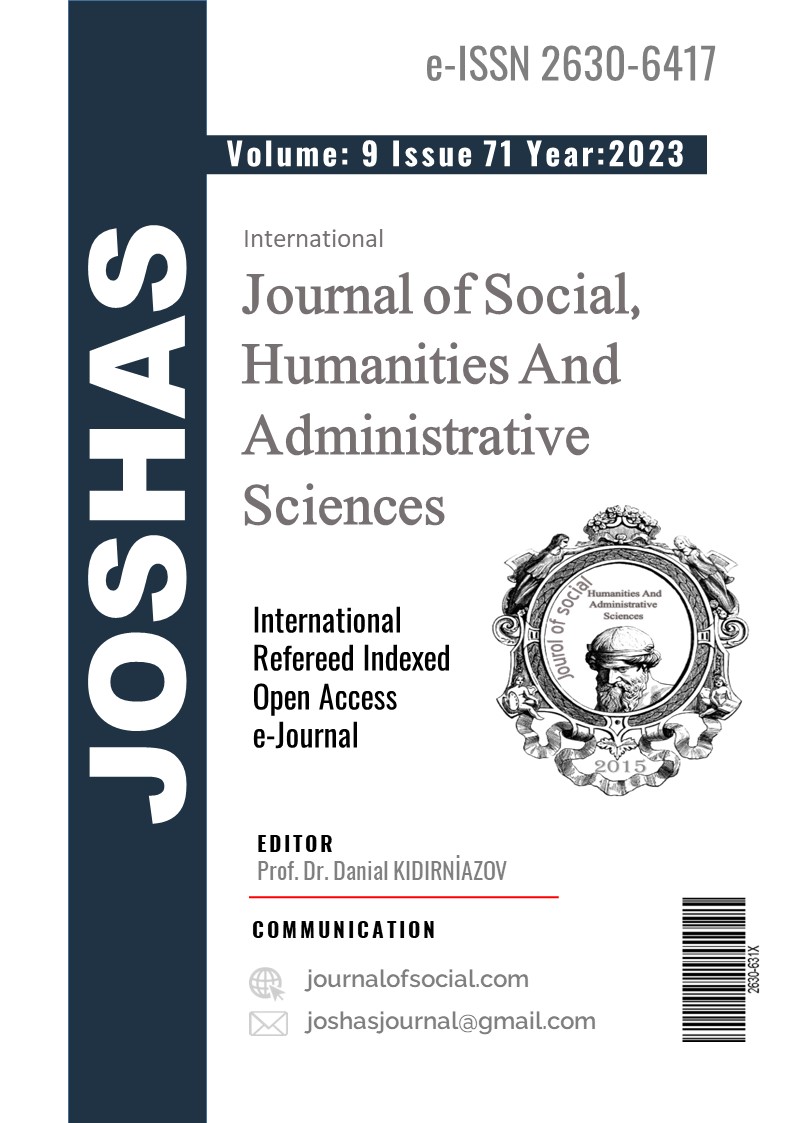Author :
Abstract
Günümüzde hızla gelişen bir teknoloji olan yapay zekanın eğitim-öğretim süreçlerinde kullanımının artacağı düşünülmektedir. Araştırmamızda öğretmenlerin eğitimde yapay zeka kullanımı hakkında neler düşündüklerini öğrenerek, yapay zekanın eğitimde kullanılmasında nelere dikkat edilmesi gerektiğini öğretmen görüşlerine göre belirlemek amaç edinilmiştir. Bu doğrultuda, nitel araştırma yöntemlerinden durum çalışması metodu araştırmamızın yöntemi olarak tercih edilmiştir. Amaçlı örnekleme yöntemiyle belirlenen 29 öğretmene yarı yapılandırılmış görüşme formları uygulanmış, sonuçlar betimsel ve içerik analizi yöntemiyle analiz edilerek yorumlanmıştır.
Araştırma sonuçlarına göre, öğretmenlerin yapay zekayı daha çok askeri teknolojiler gibi alanlarda gördükleri anlaşılmıştır. Yapay zekanın eğitimde kullanılmasıyla ilgili soru yöneltildiğinde ise %13,8’inin bu konuda fikir beyan edemediği görülmüştür. Genel itibariyle öğretmenlerin yapay zekanın eğitimde kullanılması fikrine olumlu yaklaştıkları, yapay zekanın eğitim süreçlerinde öğretmenlerin işini kolaylaştıracağını ve öğrencilerin eğlenceli bir ortamda daha kalıcı bir öğrenme olanağı bulacağı görüşlerini öğretmenlerin paylaştıkları belirlenmiştir.
Yapay zekanın eğitimde kullanılması şüpheyle yaklaşan öğretmenlerin; pahalı bir teknoloji olması nedeniyle öğrenciler arasında adaletsizliğe yol açabileceği, öğrenci ve öğretmenlerin veri gizliliğinin sağlanamaması ve aşırı teknoloji kullanıma nedeniyle öğrencilerin tembelleşebilmeleri görüşlerini paylaştıkları görülmüştür.
Yapay zekanın eğitimde kullanılması süreçlerinde eğitimde fırsat eşitliğine önem gösterilmesi, veri gizliliğinin sağlanması ve öğretmenlerin bu teknolojiyle ilgili düzenli eğitimler alması gerektiği eğitim süreçlerinin planlayıcıları tarafından dikkat edilmelidir.
Keywords
Abstract
It is thought that the use of artificial intelligence, which is a rapidly developing technology today, will increase in educational processes. In our research, it was aimed to determine what should be considered in the use of artificial intelligence in education according to teachers' views by finding out what teachers think about the use of artificial intelligence in education . In this direction, case study method, one of the qualitative research methods, was preferred as the method of our research. Semi-structured interview forms were applied to 29 teachers determined by purposive sampling method, and the results were analyzed and interpreted by descriptive and content analysis method.
According to the results of the research, it is understood that teachers mostly consider artificial intelligence in areas such as military technologies. When asked about the use of artificial intelligence in education, 13.8% of them could not express an opinion on this issue. In general, it was determined that teachers were positive about the idea of using artificial intelligence in education, that artificial intelligence would facilitate the work of teachers in educational processes and that students would have a more permanent learning opportunity in a fun environment.
Teachers who were skeptical about the use of artificial intelligence in education shared the views that it could lead to injustice among students because it is an expensive technology, that data privacy of students and teachers cannot be ensured, and that students may become lazy due to excessive use of technology.
In the processes of using artificial intelligence in education, the planners of educational processes should pay attention to the importance of equal opportunity in education, ensuring data confidentiality and regular training of teachers on this technology.
